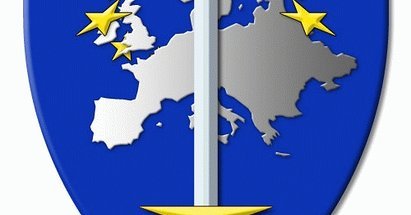What is Eurocorps?
Eurocorps was created in 1992 following an initiative from France and Germany. At a second stage, Belgium, Spain and Luxembourg joined as well. Its composition can be split into two parts: the contingent sent by the member countries and small contingents sent by other states (Austria, Greece, Poland and Turkey).
Accordingly, the Eurocorps is capable of gathering up to 60,000 soldiers, who can be deployed in less than 30 days under the command of different organisations: the United Nations, the European Union, the Western European Union, the North Atlantic Treaty Organization and the Organization for Security and Cooperation in Europe.
Although Eurocorps is permanent, the soldiers who are part of it are detached by their national armies for a certain lapse of time. The means available are consequently linked to the national States, whereas the command line is independent from the soldier’s origin.
Eurocorps was used only three times since its creation. The first mission took place overseas in Bosnia-Herzegovina in 1998 for the Stabilization Force (SFOR). The contingent was of 150 soldiers for a period of 18 month. The second mission was within the KFOR operation in Kosovo in 1999. Finally, Eurocorps was sent to Afghanistan in 2004 and 2005.
What consequences shall we draw?
This short historical recall shows that in 16 years of existence, Eurocorps has been involved only three times in overseas operations. If the little means that Europe has to project its defence are under-loaded, why should we foster them?
A second interesting element to note is that the initiative for the deployment of Eurocorps has always been taken within NATO and never by the European Union itself. Should the European Defence be considered as a coalition of states inside NATO, since the very beginning of its creation?
A possible evolution into a European Defence?
With a budget of 13 million euro provided by its member states, Eurocorps is a small attempt to deliver a European Defence. The Lisbon Treaty will provide new possibilities for going forward.
When – and if - the Treaty will enter into force, a group of countries will have the opportunity for creating a cooperation aimed at setting up a permanent army within the framework of the European Union. Although unanimity will still be the voting rule, the European Union will be able to project its army in different parts of the world without begging means to NATO (if the size is sufficient). The Treaty offers new possible directions of development but does not define precisely how this cooperation will be fixed. It is up to the Member States to catch the opportunity and step forward towards a truly European Defence.
Building a new army or transforming the existing ones does not make any sense if it is not accompanied by the necessary funds for its functioning. The involvement in overseas operations implies additional costs that should be found in a short period of time. The current system based on the division of costs among Member States according to the number of soldiers affected to the Corps does not provide the necessary guarantee for a well-functioning organisation. To be efficient, such funds should be directly linked to the European Union (with a consequent increase of its budget). Another temporary solution still based on direct contributions by member states could allow finding funds on the medium term.
A European army will not be useful if it is not backed by a political power
A European army will not be useful if it is not backed by a political power capable of taking decisions. The current decisions of the Eurocoprs are still taken by consensus, which seems unrealistic for a European army gathering all member states.
The future relations between the European army and NATO should also be defined. Today, as Eurocorps is not directly linked to the European Union, its Member States are operating as intermediaries between the two. A consistent European army will necessitate structured relations with NATO. As a consequence, a truly European army can be existing and efficient only if the US co-operates.
The progressive integration of military structures between the European countries and the setting up of an ad hoc European Army are creating an unbalanced situation between military means and political power. The European Defence will be efficient only if it is backed by a European government with competencies in foreign affairs. Even if the Head of States agree to set up a European Army, it would represent only one step, which shall be closely followed by amendments to the treaties in order to balance the decision-making power in the field of foreign affairs with adequate military means.
Conclusions
Although some politicians have stated in front of the headquarters of the Eurocorps that its future was to become the “natural instrument of the European defence”, no scheduling of this evolution has been made public. The new possibilities offered by the Lisbon Treaty and the speeches of President Sarkozy suggest that this topic will be raised in the next months. Let’s see.


Follow the comments: |
|
